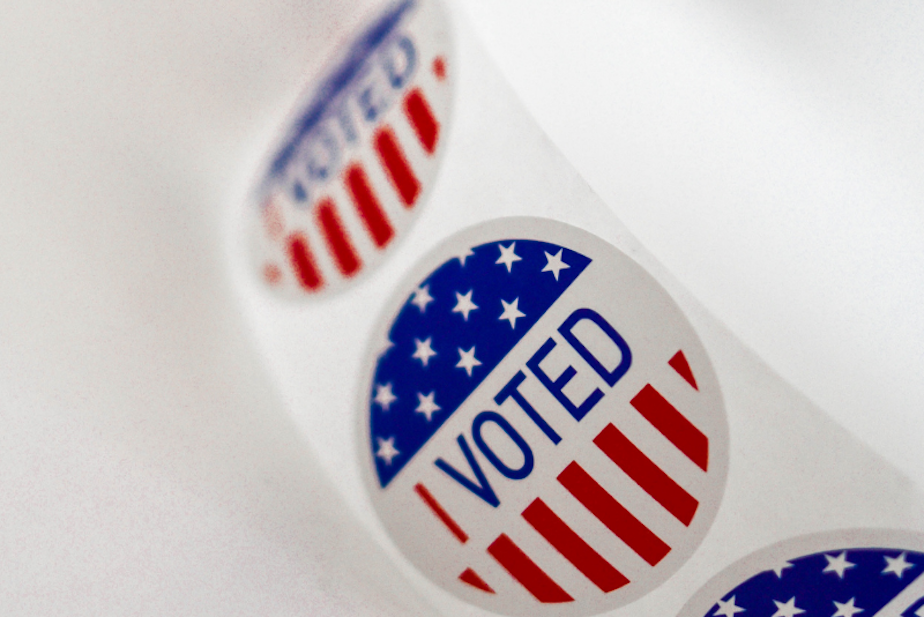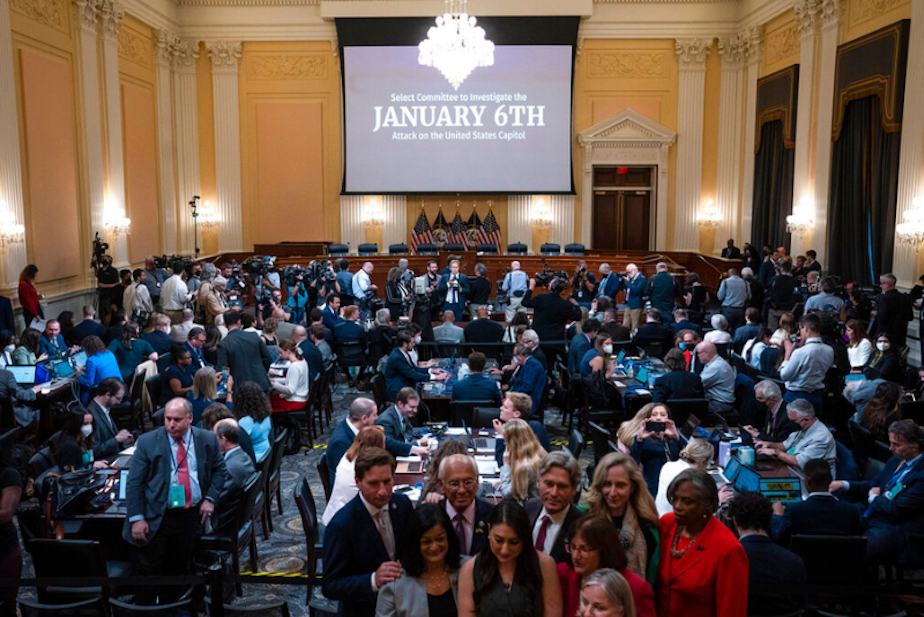Extremism makes it beyond the ballot: Today So Far

New study points out far right lawmakers and the role that social media plays in radicalized politics. It's a new insight into something that one Washington sheriff has been commenting on for years.
This post originally appeared in KUOW's Today So Far newsletter for June 10, 2022.
It's worth taking a much closer look at your next ballot. There is a bigger threat emerging across the United States than the usual left vs right tug-of-war. A new study shows that 875 state lawmakers (11.85% of all state lawmakers in the USA) have been engaging with far-right Facebook groups — 30 were found in Washington state. It's one sign of extremism making its way into elected office.
I've chatted with Spokane County Sheriff Ozzie Knezovich a few times in the past while reporting on political extremism in Washington state. We covered a lot of territory, but one point he made has stuck with me — extremist groups are seeking mainstream validation and influence, and part of that effort is getting elected to office. In fact, Knezovich told me that many of the candidates who have run against him for sheriff, attempting to take over the law enforcement job, came from radical groups (particularly the John Birch Society, but we won't go down that rabbit hole here).
Achieving mainstream acceptance is aided through extremist groups' use of words like "patriot" or even "Christian." It's effective branding on the surface. But look closer and you will uncover more radical ideologies.
Keep in mind, Sheriff Knezovich is a Conservative himself, speaking against extremism coming from his right. To be fair to his perspective, I should note that the sheriff argues the extremist threat to America is coming from multiple angles — left and right. A good example of this issue is the drama surrounding Representative Matt Shea from the Spokane area. Shea was accused of participating in domestic terrorism. It was Sheriff Knezovich who first told me, "Matt Shea is dangerous."
Which brings me back to the issue of extremist ideologies attempting to break into mainstream acceptance via elections. KUOW's Kim Malcolm spoke with Devin Burghart with the Institute for Research and Education on Human Rights. His study found that not only have radicalized candidates achieved office, they are passing laws.
A metric used for this study is lawmakers' involvement with extreme social media groups — from conspiracy groups to militias and neo-Confederates. Most of the online groups that the 30 state lawmakers from Washington state were found engaging with involve Covid denial or objecting to pandemic measures. There were also some far-right militias.
"I think it's important for people to understand that right now we're dealing with a challenge that is orders of magnitude larger than when I started doing this work 30 years ago," Burghart told KUOW. "The far right has moved significantly from the margins to the mainstream. The insurrection on January 6 was not the end of the problem of the far right in this country. It was a clarion call about the continuing problem that we're facing."
The study is intriguing because it pulls in various factors that are contributing to our political divides these days — extremism and the role the internet and social media plays in it.
The lesson here: The next time you get a ballot, take your time. Don't fill in that box just because somebody puts an "R" or a "D" next to their name. It's worth looking closer. And please, don't use social media or unverified websites as "research."
Hear the full conversation with Burghart here.
What we're also reporting:
- Former Seattle police chief admits deleting texts in wake of 2020 Capitol Hill protest
- Renton neighbors object to storing climate-friendly power in their backyards, citing safety concerns
AS SEEN ON KUOW

Saturday, June 11, around 40 to 50 cargo bike riders will compete in a disaster relief drill in Portland. The following weekend, June 18, more than 100 private pilots from Oregon, Washington and British Columbia will take to the skies to shuttle food from airfield to airfield in another mock quake relief effort. The drill scenarios entail a magnitude 9.0 full rip of the offshore Cascadia earthquake fault from Vancouver Island to Northern California – aka "The Big One." (Courtesy of Sara Harrington)
DID YOU KNOW?
It's getting harder for folks to afford household expenses in Washington state.
The nerds at QuoteWizard dove into data from the Household Pulse Survey Data Tables (Census) and the U.S. Bureau of Labor Statistics to see how inflation has affected people since June 2021. Last year, nationally, 8% of those surveyed had a "very difficult time" meeting household expenses. After months of inflation, that number is up to 15% as of May.
It's a similar story in Washington state. Those figures went from 4% to 10% over the year.
Signs of financial difficulty are more and more affecting people in other groups, too. Nationally, QuoteWizard found that fewer people reported having no difficulty meeting expenses, while numbers for those feeling the inflation strain swelled
ALSO ON OUR MINDS

New revelations and 3 other takeaways from the first Jan. 6 committee hearing
"Tonight, I say this to my Republican colleagues who are defending the indefensible. There will come a day when Donald Trump is gone, but your dishonor will remain."

